Introduction of the Company
- Fresh Fruit Co.- importer and exporter of fruits and beverages.
- Established within the free zone.
- Due to demand of fresh and healthy products in UAE.
- Various partners within Africa and Asia.
- FFC has high chances of accelerated growth.
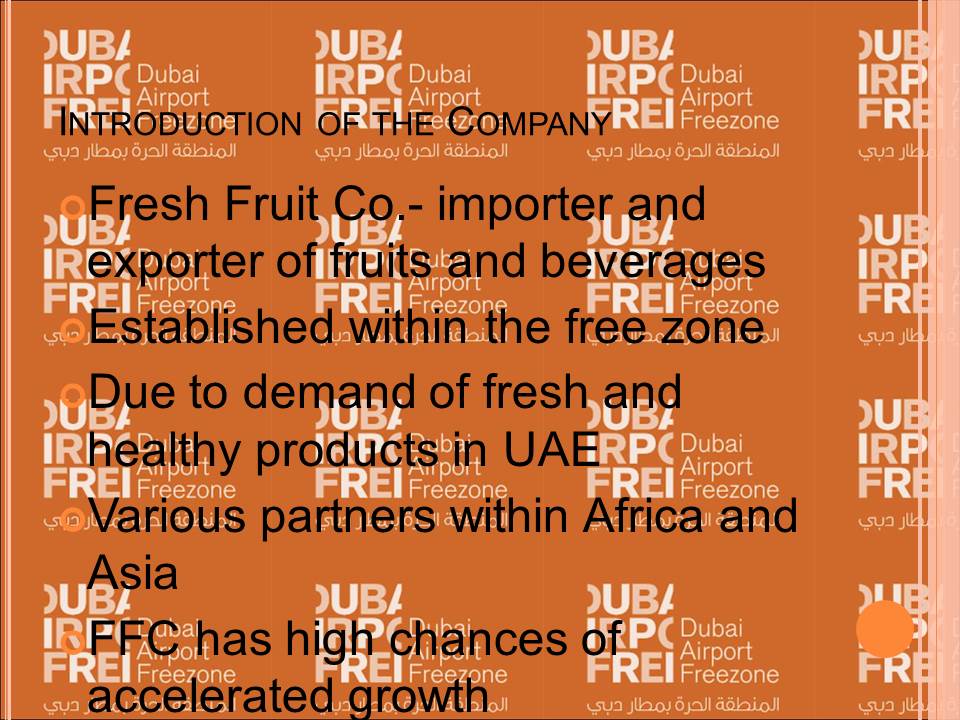
Setting Up in Free Zone
- Licensing: Designed to incorporate international business (Strong and Himber 36);
- Set up within designated zones: Airport FZ;
- Each zone has sector preferences;
- In line with the UAE economic-growth interests;
- Limited liability- individual or corporate ownership;
- Cannot conduct local bussiness.
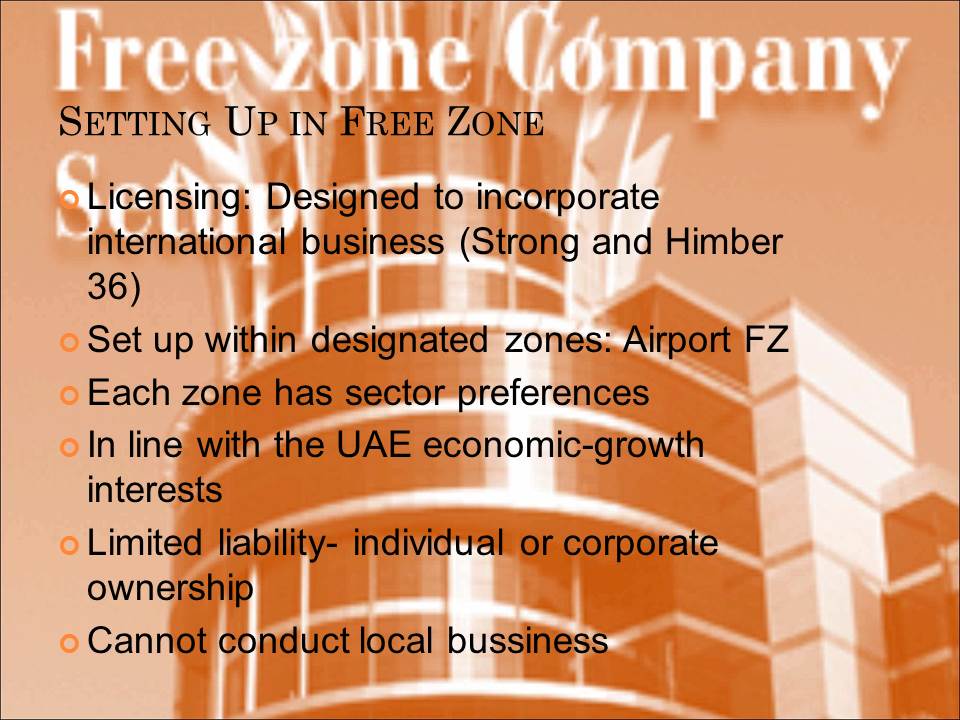
Free Versus Non-Free Zones
- FZ business can be 100% foreign owned;
- No corporate taxes in FZ;
- No currency restrictions in FZ (Hvidt 400);
- Energy provision subsidized /guaranteed in FZ;
- 24-hour operations for FZ companies;
- Centralized operations in FZ;
- All FZ entities subject to custom.
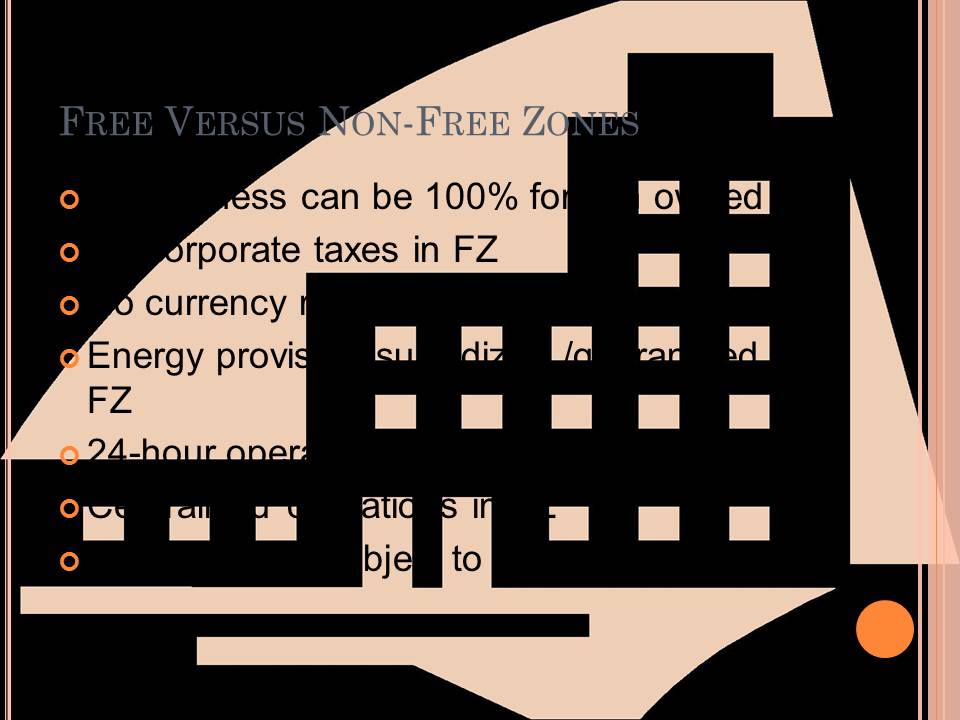
Challenges of Setting up Company
- The process is lengthy and tasking;
- FZ rules take precedence over company policies (Rao 251);
- The one-shareholder policy is a hindrance;
- High need for research;
- Difficulties settling for the right zone;
- Immigration rules and requirements.
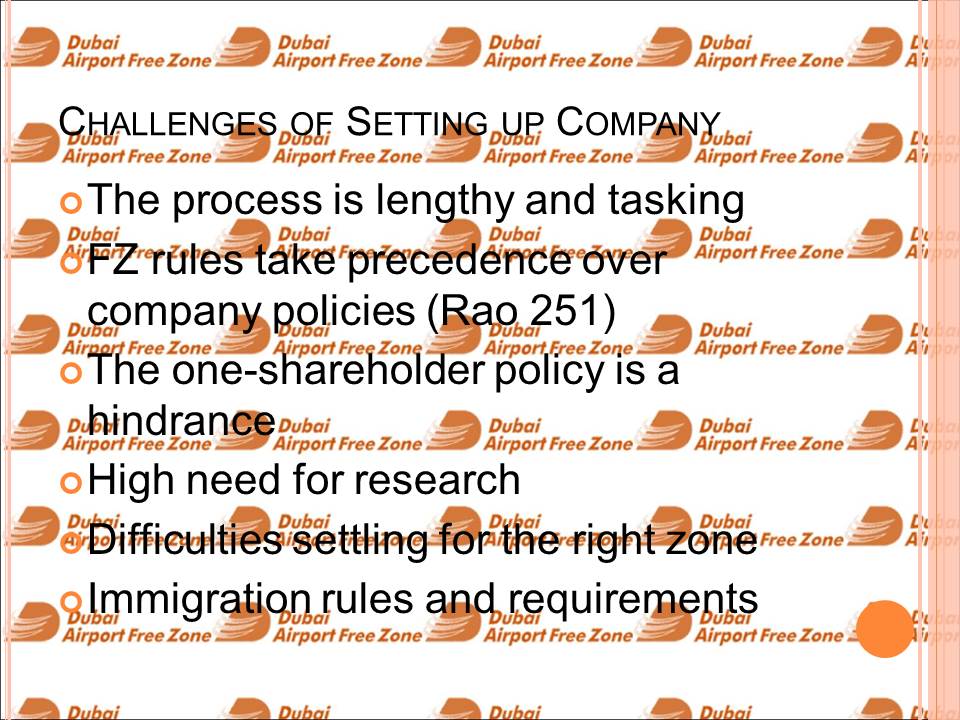
Addressing Challenges
- Have full understanding of incentives for each FZ;
- Cooperate with local authorities/Emiratis;
- Conduct prior market research;
- Utilize local and international experts (Zarrouk 48);
- Sort out ownership issues before registration;
- Operate within legal frameworks.
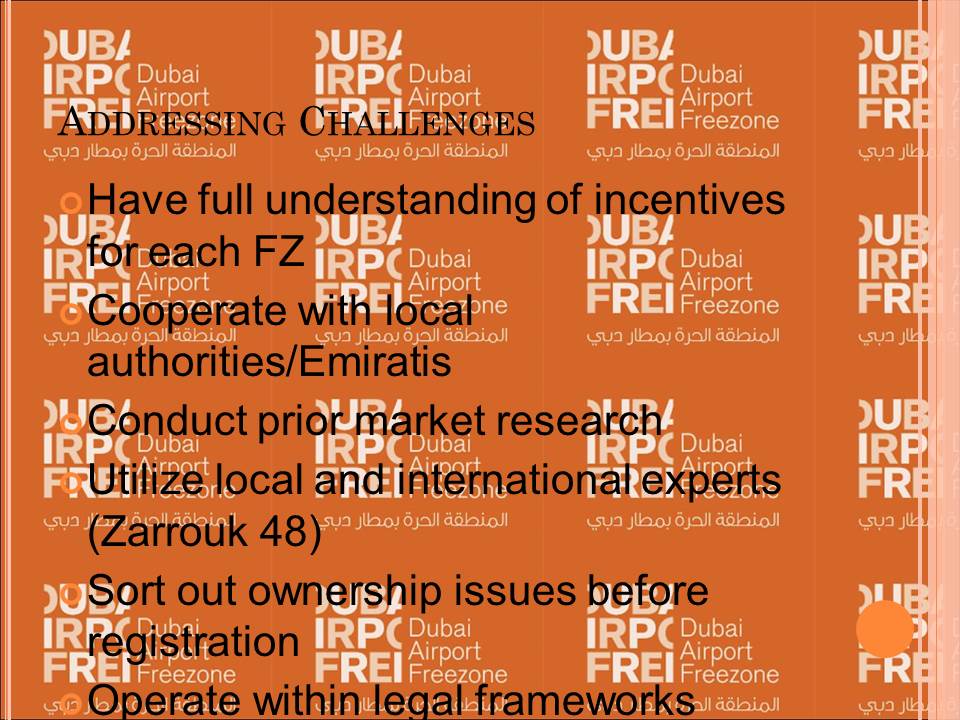
Setting up for Non-Emiratis
- Seek residency confirmation for both owners and staff;
- Tax residency certificate;
- Familiarize with local business culture;
- Visa-holding employees might require mandatory 6-month residency;
- Formulate relationships with local enterprise.
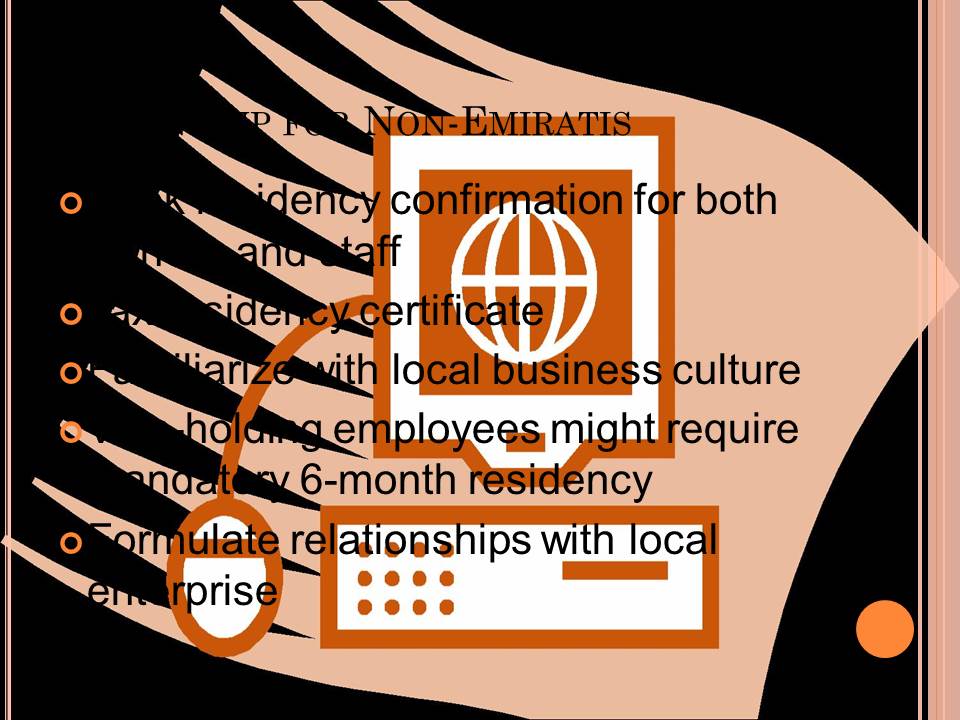
Logistical Challenges
- Special storage for fresh products is a must;
- Additional requirements for trading within the UAE;
- Limited use of expatriates;
- Leasing space within FZ is mandatory;
- Lengthy documentation is a requirement;
- Only viable for long-term businesses.
Special storage might limit the business to airport environment, an option that is expensive for the FFC.
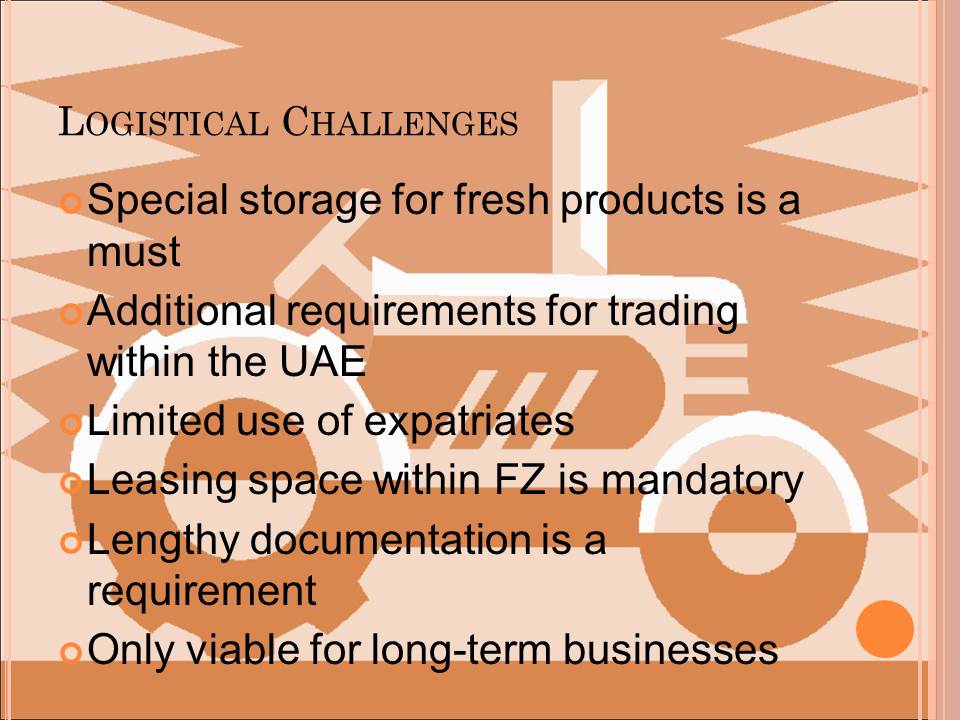
Setting up in other GCC Countries
- Fresh products still a favored product in GCC;
- Similar legal codes just like in UAE (Hertog 52);
- Bahrain has the most reputable FZ within GCC;
- Similar incentives across GCC with subtle differences;
- Saudi Arabia has the least reliable FZs;
- All FZs target specific industries;
- Fresh fruit business is favored by both FZ and non-FZ;
- GCC customs laws are largely similar;
- Businesses operating under FZ require mainland intermediaries;
- Visa and other permit requirements similar;
- Kuwait and Saudi Arabia standout in GCC.
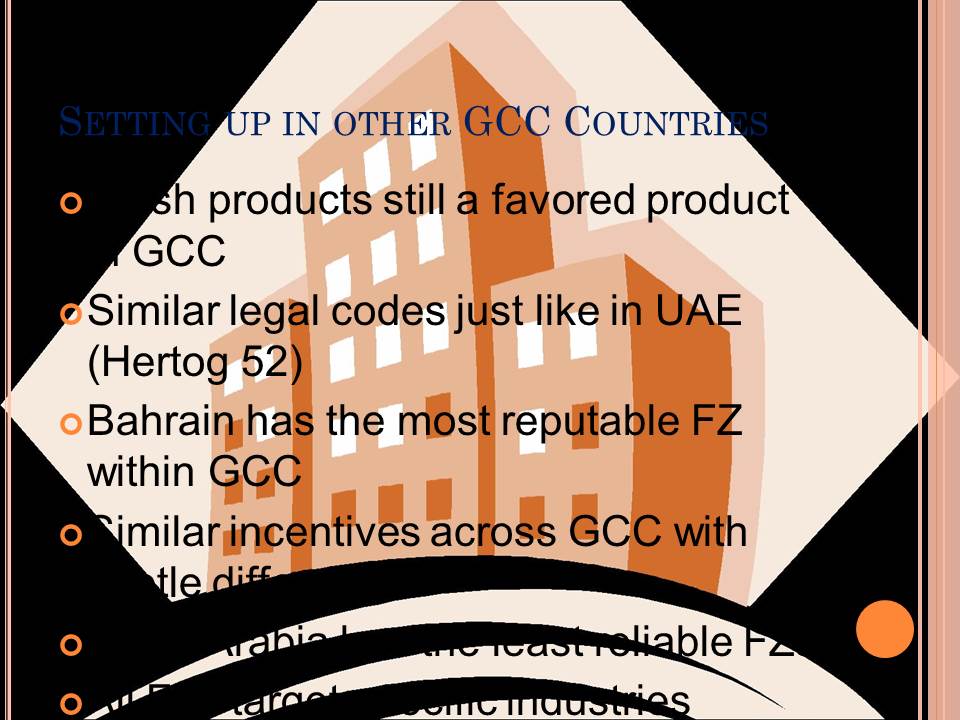
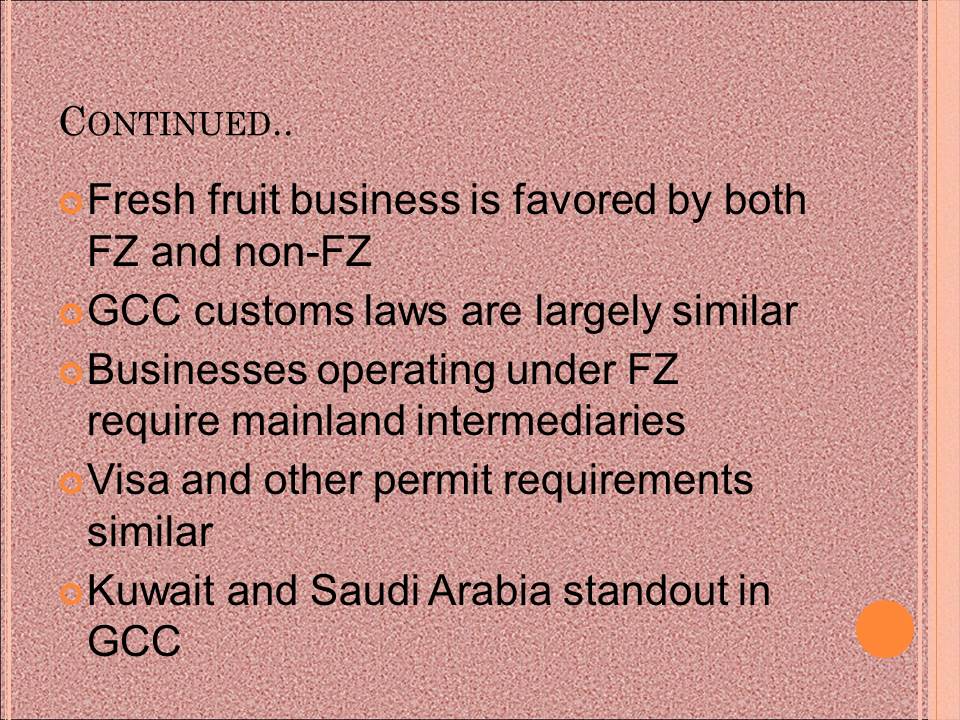
Setting up in Singapore
- GIP program for all potential investors;
- EntrePass –for those setting up companies in Singapore;
- Visa requirements are limited to locations and activities (Wan, Ong, and Lee 262);
- Businesses registered through ACRA;
- Foreign companies require at least 2 local agents.
Global Investor Program (GIP) –makes it easier for foreigners to enter and conduct business in Singapore.
Accounting & Corporate Regulatory Authority (ACRA)- registers all types of businesses.
- Singapore’s economic data is readily available;
- Finding suitable premises a challenge;
- Consultancy services are readily available;
- Involvement of natives a must for foreign businesses in Singapore;
- Taxes: income tax, GST Tax, etc;
- Corporate tax is 17%.
GST- Goods and Services Tax.
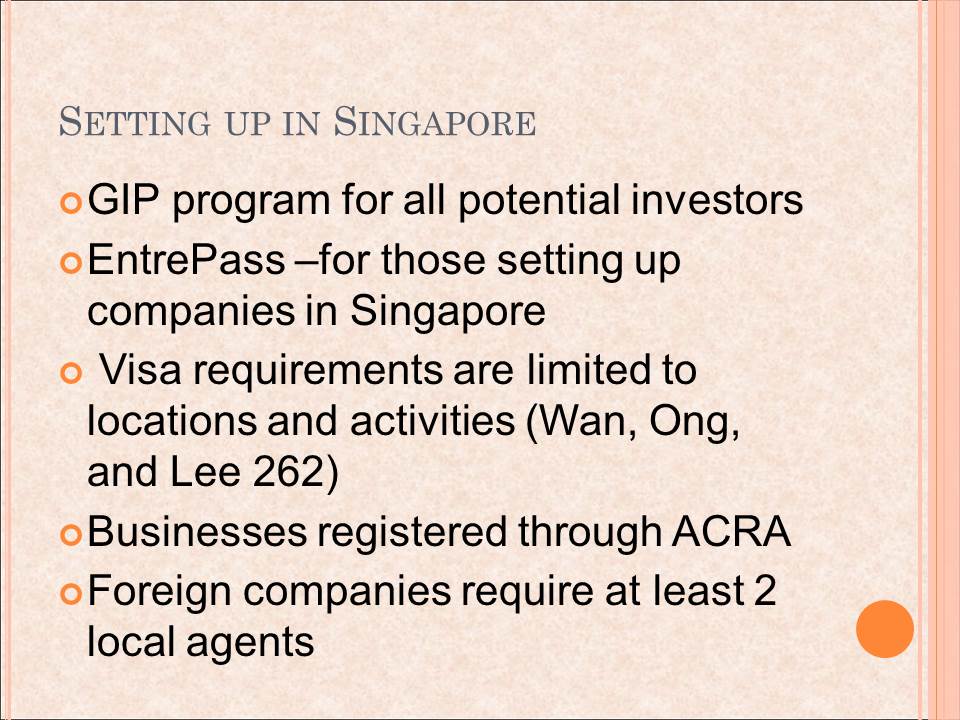
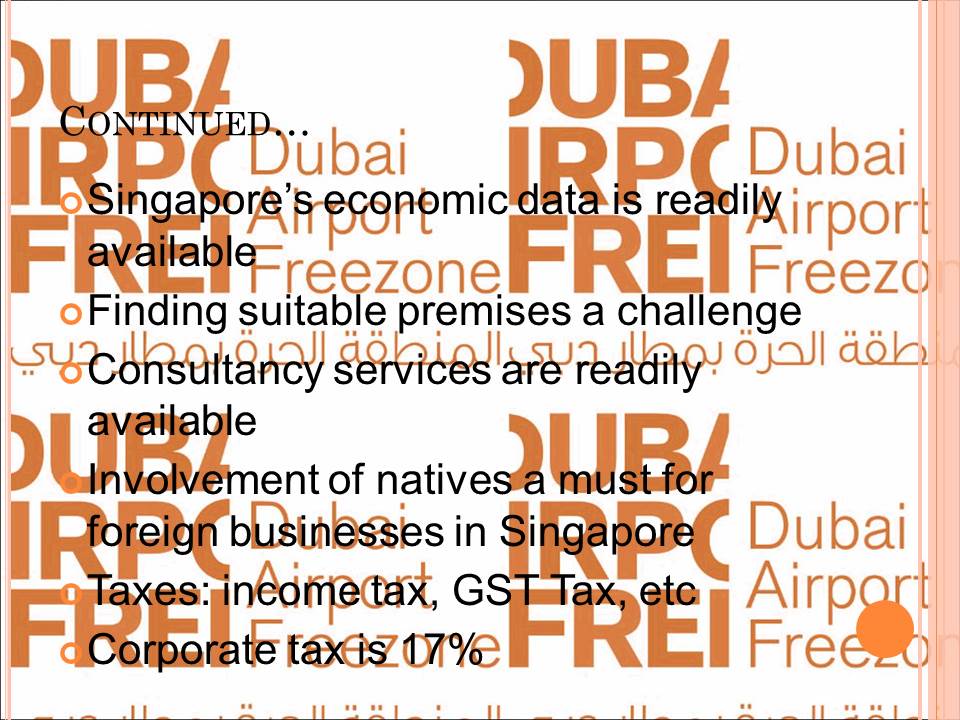
Recommendations
- FZ set up should be accompanied with local branch;
- FZ mode cheaper in the long-run;
- FZ makes it easier to sell within the GCC;
- UAE still the best option within GCC, then Bahrain;
- DAFZA the most ideal FZ for FFC;
- Market research and consultancy before setting up.
DAFZA – Dubai Airport Free Zone Authority.
- FZ is ideal for citizens and non-citizens;
- Beverage and fresh products on high demand within the UAE;
- Non-FZ ideal for smaller and short-term businesses;
- All logistics can be circumvented.
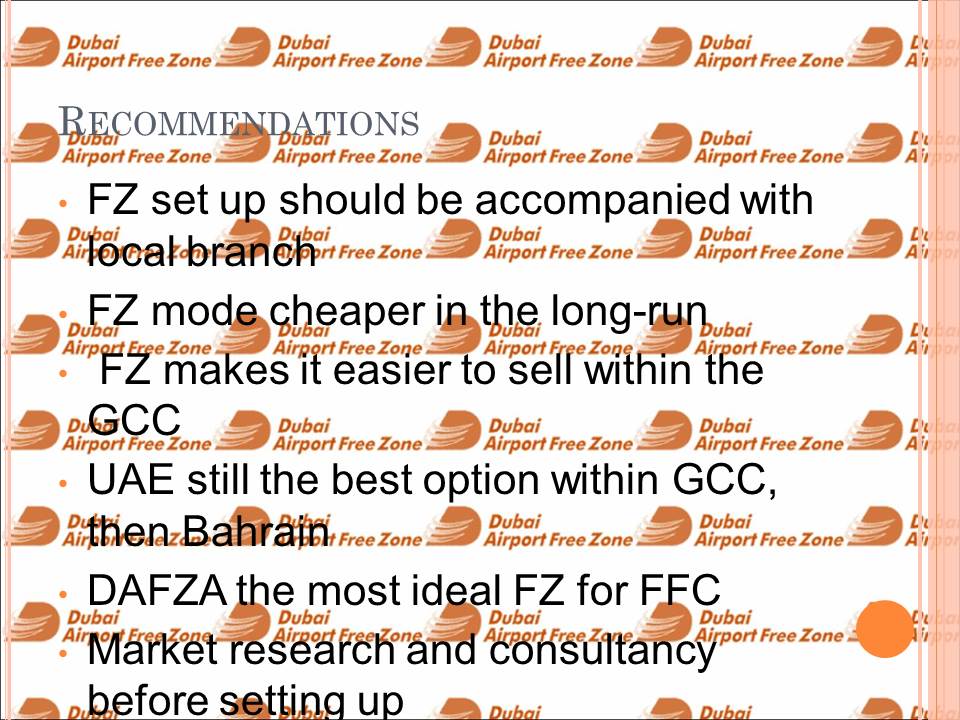
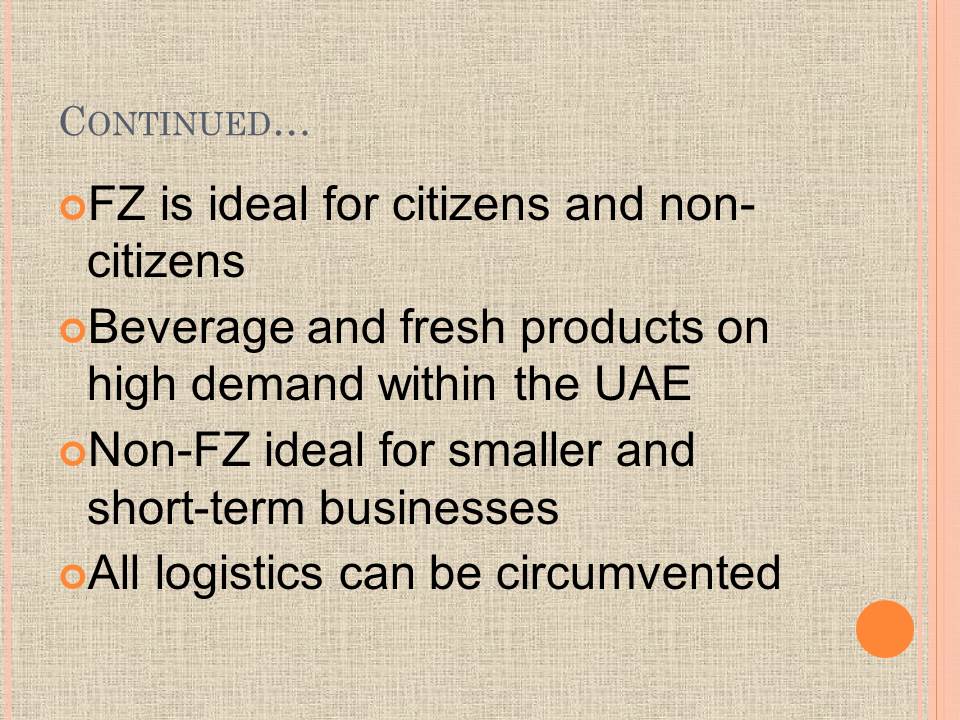
Works Cited
Hertog, Steffen. “The GCC and Arab Economic Integration: a New Paradigm.” Middle East Policy 14.1 (2007): 52. Print.
Hvidt, Martin. “The Dubai Model: An Outline of key Development-process Elements in Dubai.” International Journal of Middle East Studies 41.03 (2009): 397-418. Print.
Rao, Kishore. “Free Zones in the Middle East: Development Patterns and Future Potential.” Trade Policy Developments in the Middle East and North Africa (2000): 245-264. Print.